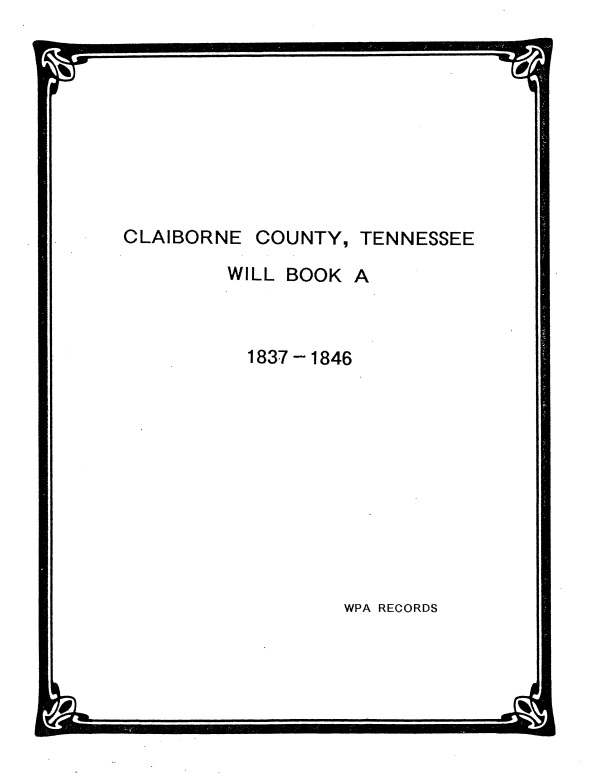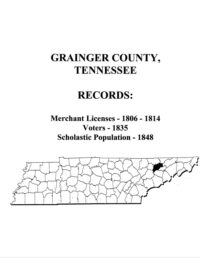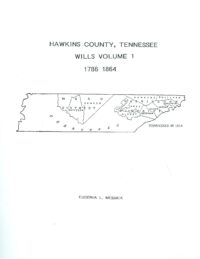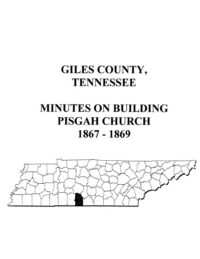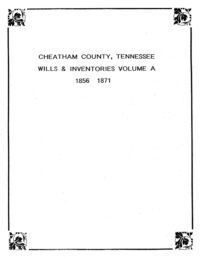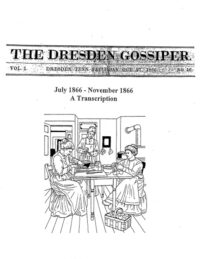Description
***Downloadable PDF File. After payment is received, you will receive an email from Southern Genealogy Books. Click in the download box for the file to automatically download. Please save file since the link will expire in 14 days.
The FULL TEXT of each will and/or inventory is published intact and includes everything from bequeaths of land, homes, and livestock to beds, pots, pans, and clothing.
Included are wills filed or probated in Claiborne Court between 1837-1846. Reading these wills is like taking a trip to another place, another time. Here’s a short abstraction from a typical Last Will compiled by WPA Workers:
(spelling errors left intact):
“Isaac Robrts has fourteen negroes, fourteen horses, thirty head of cattle, fifty-one head of sheep, two hundred and fifty hogs, one yoke oven, one wagon, eight feather beds, and furnishture – three tables, one bureau, one dish, one book case, one cupboard, and furniture, one dozen chairs, one candlestick, one chest, one duch wheat fan, five plows, one iron harrow, six axes, seven hoes, one large crib, one loom, three wheels, three thousand pounds of pork, two kettle, five potts, five ovens, one saw mill irons, one coss-cut saw, one handsaw, a few other tools, one large bible, a few other books, eight hundred dollars, one compass and surveying instruments, one brass pistol, one sword, one saddle, one pare saddle bags, three bridles, one broad axe, two stone hammbers, two grubbing hoes, two hundred weight of lard, one note – it $37.50.
The Wills and inventory of the following individuals are contained in this volume. Please remember – names of children, spouses, aunts, uncles, cousins, neighbors, slaves, friends, and more are included in these wills.
David Alexander
Robert Barnard, C.B. Bullard, Hazekiah Brooks, Philip, Bundren, William Braxton, Peter Beeler, Armsted Brooks, Sylvenus Brewer, Abraham Buise, G.P. Brooks, John Bradon, John Bowls, John Barnard
Corbin Cheek, John Campbell, John Crutchfield, William Capps, A.M. Cloud, Benjamin Cloud, Stanwix Cloud
George Dobkins, Chesley Dobbs, James Dickinson, thomas Dunn, John Dodson, Joseph H. Dvid, John Day
John Evans, Elijah Evans, James P. Edwards, John Evans, Sr.
Henly Fugate
Pleasant Gowin, A.J. Chadwell, William Graham, John Grimes, John Graves
D.M. Hodges, John Hurst, Aaron Hurst, James Hamelton, Sr., Andrew Hurst, Drewry Harrell, John Hurst, James Hamelton, John Hodges, William Hamelton, Uriah Honeycutt, Jesse Hurst, Allen Hodges, William Hooper, Sr.
John Jones
David Kesterson, Francis King
Major Lee, Abel Lanham, Henry Lee, Thomas Lee, John H. Lee
William Mose, David Moore, Murcellus Moss, Jno. P. McDowell, John Moor, William McNew, Sarah Miller, Martin Miller, Isaac McBee, Mary Moss, Thomas McClain
Susannah O’Daniel
Franklin Parks, George Powers
John Qualls, Judah Qualls
Moses Ritter
Joseph Russell, William Rogers, John H. Rowlet, William B. Robinson
Mark Shumate, Jacob Shults, George Shetter, William Sharp, Sr., Adam Sowder, William D. Simmons, Willliam Sanders
William Trew
William Wornacutt, James Walker, James Wallin, William Wilson
William Yearry, Henry Yearry
* WPA Workers
During the Great Depression in the early 1900s, many Americans were given a “job” by the United States Government to support their family. One such “job” was transcribing early court, family, Bible, and cemetery records as well as other local records. Original versions were typed on onion skin paper with “x” number of carbon copies. Although the State Archives owns the vast majority of ‘first’ or typed copy, carbons have circulated for years but are now scattered. Often the typing is not the best and is difficult to read but these valuable records still constitute one of the best sources of information for Tennessee Counties. In many cases, these are all that remain of the original as many county records have been lost. WPA records are generally full text transcription: much larger in scope than an abstraction or summary.
